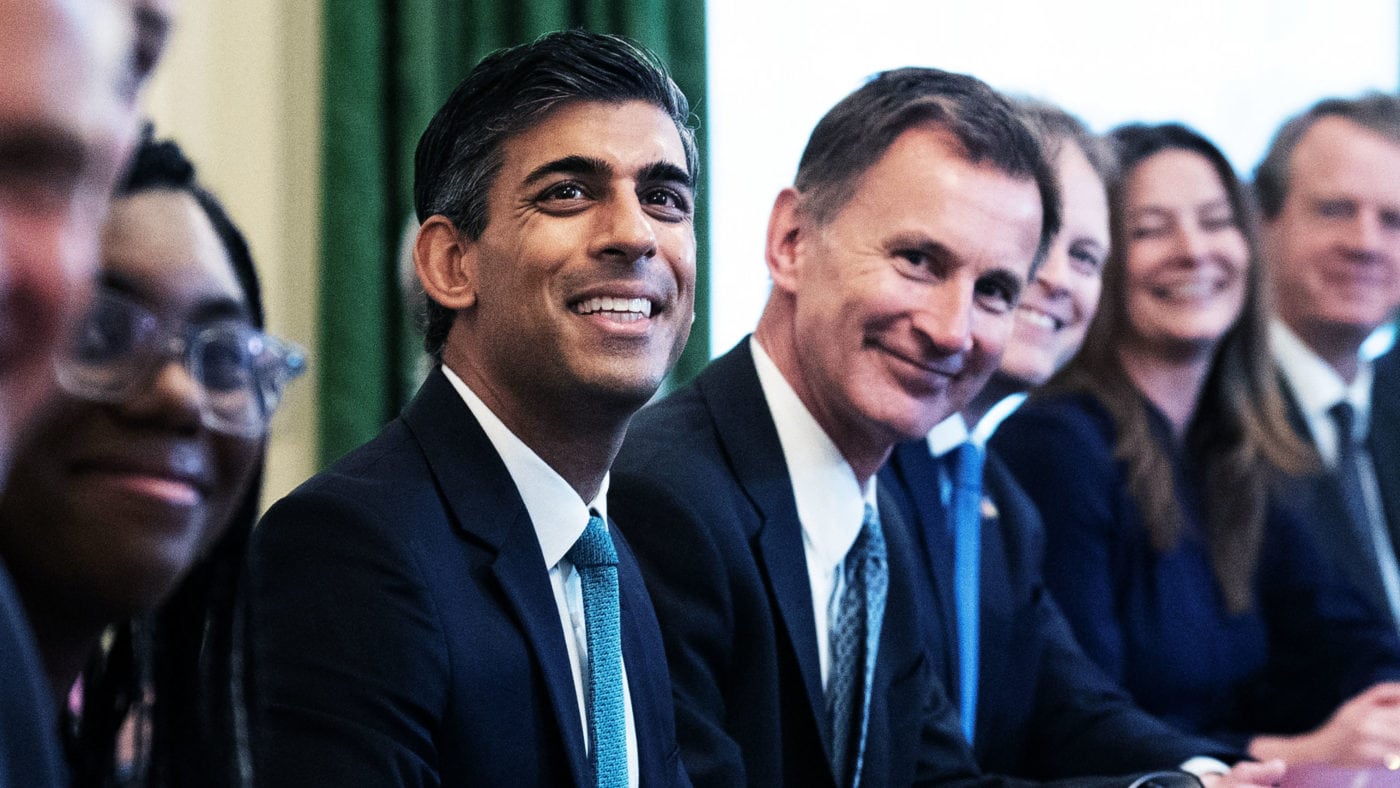With all the important news and views about Gary Lineker’s Twitter account, you could be forgiven for forgetting there’s a Budget coming up this week.
There has been the odd story about a tax cut here or a spending plea there, but nothing like the furious briefing and counter-briefing of years gone by. Perhaps that’s a welcome by-product of the image Jeremy Hunt has cultivated in his brief time as Chancellor. No ‘rabbits’ or fireworks here, just diligent work to reassure the bond markets and get the ship of state back on an even keel.
External headwinds are at least looking a bit less ferocious: wholesale energy costs are well down on the end of 2022, feeding into (slightly) lower inflation. Those lower energy costs also mean more fiscal ‘headroom’ – though the variation in estimates of how much is indicative of how fraught and uncertain the macroeconomic picture remains.
There is much to commend a less hyperactive approach, particularly on tax. The endless yo-yoing of rates and introduction of new allowances and carve-outs has made our tax code an unpredictable minefield, both for existing businesses and would-be investors, many of whom look at the UK and see chronic low growth and profound labour market problems. (On the latter, our colleague Karl Williams has a fascinating CPS paper on economic inactivity out this week.)
Successive governments’ approach to investment has been particularly muddled. Commentators got very exercised by Boris Johnson apparently saying ‘f*ck business’, but policymakers have been saying the same thing in less explicit terms for years, and some of those businesses have listened.
A key example is that capital allowances – what firms can write off against their tax bill – have been miserly compared to most developed economies. That has long struck many people, of varying political persuasions, as an oddity – given how often low business investment and consequently low productivity have been identified as crucial economic weaknesses. (That picture also makes the upcoming huge hike in corporation tax even more unwelcome.)
There’s also been too much fiddling about in this area. For instance, the threshold for the Annual Investment Allowance has been changed five times in the past 10 years (as Robert Colvile and Tom Clougherty note in a detailed CPS briefing this week).
Rishi Sunak, to his credit, seemed to realise investment was a problem area when he was Chancellor, introducing a ‘super-deduction’ so that companies could write off 130% of their outlay on qualifying plants and machinery. Unfortunately, like so much of British policymaking, it was only a short-term fix, and it’s coming to an end in a few weeks’ time.
When George Osborne was Chancellor he did a fine job of sounding extremely pro-business by lowering the headline corporation tax rate, even though he clawed back tax in a myriad other ways. With Hunt we may end up getting the reverse: a big, deeply damaging, rise in corporation tax sending a bad message to investors, with a bunch of positive but less memorable offsetting measures, such as more generous capital allowances.
And as he puts the finishing touches to his plans, Hunt has a short-term crisis to deal with. As John Myers has written for us this morning, the collapse of Silicon Valley Bank has left a host of British tech firms potentially stranded, unable to make payroll and at risk of going under. Given the Bank of England’s implausibly sluggish response, now is the time that Hunt can go beyond the ‘steady hand on the tiller’ and take decisive action when it is most needed.
Click here to subscribe to our daily briefing – the best pieces from CapX and across the web.
CapX depends on the generosity of its readers. If you value what we do, please consider making a donation.


